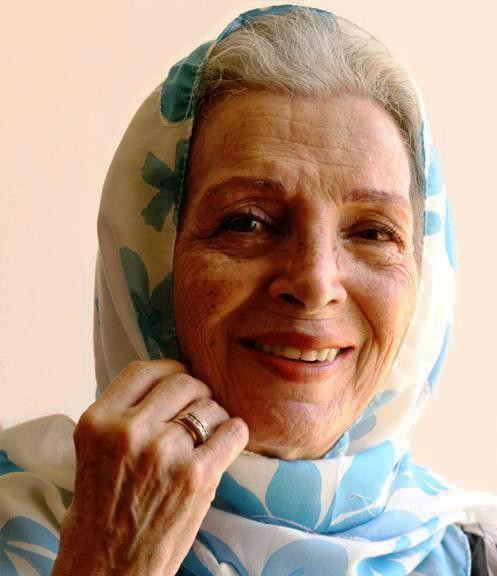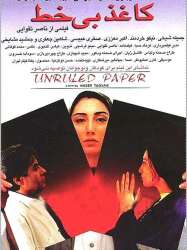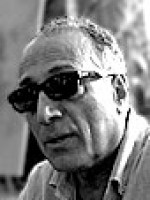Niku Kheradmand is a Actor Iranienne born on 1 january 1932 at Tehran (Iran)

Niku Kheradmand (1932 – 17 November 2009) (Persian: نیکو خردمند) was an Iranian actress and film dubber. She died in a Tehran hospital on 17 November 2009, aged 77. Kheradmand had suffered a heart attack several months earlier.
Filmmaker Mehdi Sabbaghzadeh had once regarded Niku Kheradmand as the mother of Iran's cinema. Her first work in film was The Last Act by Varuj KarimMasihi. She appeared in The Plaything by Turaj Mansuri. Other works include Havana Dossier (Alireza Raiisian), Café Setāreh (Saman Moghaddam), and How Much Do You Want to Cry (Shahed Ahmadlu). She played a role on the TV series Thieves of the Grandmother.
Source : Wikidata
Niku Kheradmand

- Infos
- Photos
- Best films
- Family
- Characters
- Awards
Birth name Niku Kheradmand
Nationality Iran
Birth 1 january 1932 at Tehran (Iran)
Death 17 november 2009 (at 77 years)
Nationality Iran
Birth 1 january 1932 at Tehran (Iran)
Death 17 november 2009 (at 77 years)
Filmmaker Mehdi Sabbaghzadeh had once regarded Niku Kheradmand as the mother of Iran's cinema. Her first work in film was The Last Act by Varuj KarimMasihi. She appeared in The Plaything by Turaj Mansuri. Other works include Havana Dossier (Alireza Raiisian), Café Setāreh (Saman Moghaddam), and How Much Do You Want to Cry (Shahed Ahmadlu). She played a role on the TV series Thieves of the Grandmother.
Usually with
Filmography of Niku Kheradmand (2 films)
Actress

Shirin (2008)
, 1h32Directed by Abbas Kiarostami
Origin Iran
Genres Drama, War, Documentary, Historical
Themes Films about films, Documentary films about the film industry, Documentary films about films
Actors Niki Karimi, Taraneh Allidousti, Golshifteh Farahani, Mahnāz Afshār, Juliette Binoche, Zahra Amir Ebrahimi
Rating66%





Cent-quatorze spectateurs, essentiellement féminins, assistent à la projection de l'adaptation cinématographique d'un classique de la littérature perse du XII siècle. Ces spectateurs s'émeuvent de l'histoire d'amour qui se déroulent sous leurs yeux : le film n'apparaît dans la mise en abyme qu'à travers sa bande son et les réactions du public. Néanmoins, le réalisateur trompe le spectateur puisque les actrices n'assistent pas réellement à une représentation filmique.

Unruled Paper (2002)
, 1h50Origin Iran
Genres Drama, Comedy
Actors Khosrow Shakibai, Hedieh Tehrani, Jamshid Mashayekhi, Jamileh Sheykhi, Niku Kheradmand, Afarin Obeysi
Roles Esmat Khānom, a good friend of Aziz. Visiting Aziz on her way back to her home after visiting the graveside of her late husband, Ahmad, Aziz asks Esmat Khānom whether she feels a sense of peace for having visited her husband's graveside. After some though
Rating67%





The film starts with a scene of a sitting room, empty of people, at some two minutes to 7 o'clock in the morning, and ends with a scene of the same empty room at some two minutes past 7 o'clock in the morning of some weeks later; this passage of time is accurately depicted by the brightness of the natural light that is reflected on the wall of a corridor, that leads to this sitting room, in the initial and final scenes. The meticulous attention that Taghvā'i has given to the accurate representation of even the most mundane aspects of the film would at first sight seem to be at odds with the fact that with the exception of the opening and closing scenes, in all other scenes where the clock on the wall of the sitting room is in sight, its pendulum is conspicuously motionless. The opening scene depicts some moments before the family starts a very active day (the day at which the two children of the family, Shangul and Mangul, have their first school-day after the summer school-holiday) and the closing scene, the end of a protracted Friday night, during which Jahāngir and Royā have spent an intellectually and emotionally exhausting night. The motionless pendulum suggests that the events in the intervening period have taken place out of time, or only in imagination. Although the work presented by Taghvā'i certainly qualifies as a surrealist art-form, this motionless pendulum serves as a more profound tool than a means that solely hints at surrealism. Taghvā'i conveys a number of unobtrusive verbal and visual messages to his viewers. Briefly, Taghvā'i and Ms Minoo Farsh'chi, the co-author of the film script, variously refer to the theory of eternal recurrence, as revived by e.g. Friedrich Nietzsche, with a strong emphasis on the importance of having a creative mind thereby to forge room for free will in at least an imaginative world.
 Connection
Connection


